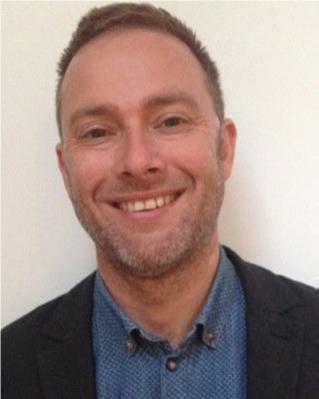Let’s Rethink Teacher Self-Improvement When It Comes To SEND

Simon Knight discusses a new Whole School SEND initiative that aims to actively encourage self-improvement in SEND practice…

- by Simon Knight

In education, it can sometimes be difficult to open up about the things that professionally we find most challenging. There can be risks associated with saying, ‘I’m not very good at this and would like to get better.’
This can often be the case when thinking about how best to meet the requirements of children with SEND. There can be a confidence and competence deficit, due to teachers not necessarily being shown how to address complexity in the classroom, and therefore not always believing that they can.
And yet, the pedagogical knowledge necessary to be effective in addressing the educational requirements of children and young people with SEND isn’t particularly complex. We just need to commit to exploring them and reflecting carefully on our own effectiveness, in order to develop the expertise necessary to be effective for all children.
Shining a light The Whole School SEND consortium, hosted by the London Leadership Strategy, comprises a range of schools, charities, professional development providers and educational organisations, including nasen and the Driver Youth Trust.
Part of its work is to shine a light on the SEND expertise that exists within the education system, and to that end it has produced a number of SEND Review documents.
One of these resources, developed with the support of parents, schools, universities and young people is the ‘SEND Reflection Framework’, launched in November 2017 (SENDreflection.com).
It’s intended to create a space where it’s not just okay to acknowledge those areas where you may need to improve your SEND practice, but where doing so is actively encouraged. It’s a non-judgemental documentary framework that should be used for professional development, rather than purely for appraisal.
It offers an opportunity to reflect on how effectively the requirements of all learners are being met, linking professional perceptions to examples of impact, and should be delivered as a coached programme of ongoing critical reflection. Aligning its implementation to the recommendations of the Standard for Teachers’ Professional Development (see tinyurl.com/tpd-dfe) is likely to enhance the impact of the time invested.
It’s also designed to be used flexibly. It could be used to support an individual or an entire school, or even by subject leads in order to look at interdepartmental variance, for example within a large secondary.
It also doesn’t need to be worked through progressively from front to back, but can be used to focus on identified individual priorities or whole school collective ones. The document itself is broken down into seven sections, each made up of a range of aspirational statements against which evidence of current strengths or areas for improvement can be applied.
More than just an audit
A section on ‘The Quality of Teaching and Learning’, for example, contains the following:
- I integrate strategies from interventions into my teaching so that learners can sustain progress.
It’s important to reiterate that this isn’t just a simplistic audit of competencies, but should be thought of as a framework to support ongoing professional development. If it’s to be successful, then it needs to foster open and honest discussion, rather than simply lead to anecdotes or answers lacking evidence of impact.
It offers an opportunity to embrace that which we need to improve on so that every child, irrespective of the complexity of their requirements, gets access to the very best education possible.
Simon Knight is the director of Whole School SEND; follow him at @SimonKnight100










